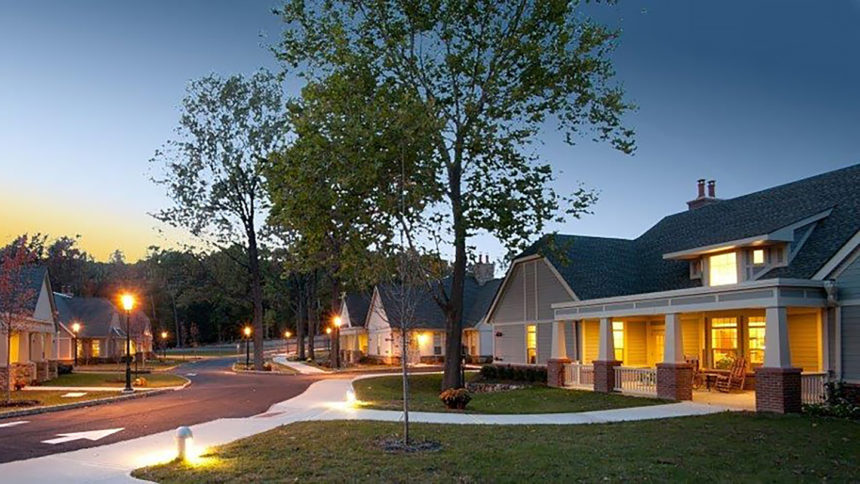
Providers pursuing Green House projects and prioritizing steps to enhance care quality such as private rooms have won significant victories on Medicaid reimbursement funding in Ohio.
The state’s budget has added significant funding for skilled nursing facilities beginning in 2024, including incentives for providing quality care that are still unusual from state governments.
Sustained lobbying pressure not just from associations but also from individual providers in the state was instrumental in convincing policymakers to adopt these measures, said Jill Wilson, president and CEO of Otterbein SeniorLife, a Green House partner organization.
“We did feel very strongly that it was not a problem that should be delegated to our associations to solve,” Wilson said.
Wilson shared her organization’s story as a case study in how to turn more than $9.5 million in projected yearly Medicaid patient losses into projected profits during a webinar hosted by the Center for Innovation Thursday.
She said she hopes the success realized in Ohio can be replicated in other states.
Addressing a funding crisis
With inflation and labor costs skyrocketing after the COVID-19 pandemic and Medicaid rates in Ohio not keeping pace, Wilson said the situation had become a crisis for Otterbein.
More than 90% of its beds are currently dedicated to private rooms — mostly at small Green House facilities that support 10 to 12 residents at a time. Ohio, where all but one Otterbein facility is located, had not previously compensated private rooms any differently than shared rooms.
With a Medicaid funding gap projected to reach nearly $10 million in 2023 and federal COVID relief funds no longer in the picture, Wilson began an aggressive campaign of contacting state lawmakers and department heads.
“The reality is that it is all of our jobs to work with those who make these decisions and help them understand how their decisions will impact their constituents in their districts,” Wilson asserted.
Wilson sent letters outlining the funding gaps facing her facilities — financial problems that she was quick to point out are shared by many skilled nursing providers across the country.
“I didn’t try to spin it, I didn’t try to adjust it, I just tried to give them the facts. And that letter was followed up with a request for a meeting,” she explained.
She successfully met with nearly all of the policymakers she contacted, including Lt. Gov. Jon Husted (R). Those meetings proved fruitful, as Ohio’s biennial budget passed in 2023 included significant and unusual incentives for nursing homes that prioritize care quality and privacy for their residents.
Once all of these incentives take effect, Otterbein’s Medicaid reimbursement per resident per day is projected to increase from around $250 to around $325, an increase of 31%, according to Wilson.
Other states, including Arkansas and Kansas, also have incentivized care quality and private rooms through reimbursements, but such policies are not yet widespread in the US. Wilson encouraged her audience to follow Otterbein’s example and approach policymakers even if the task seems impossible.
“I had to shift a mindset that I had,” Wilson said. “If we all have that mindset, we can collectively garner that power we need — the energy that we need — that is more than the problem.”





